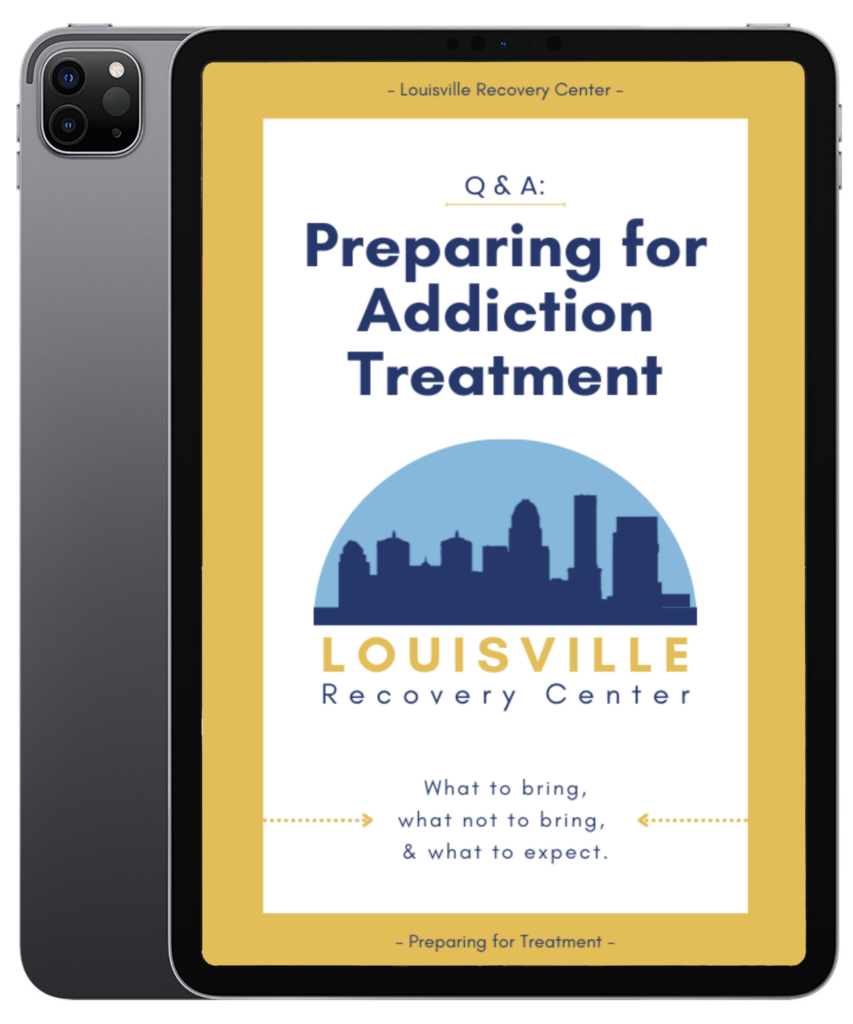Inpatient Mental Health Facilities in Kentucky
LRC partners with inpatient mental health facilities in Kentucky.

Inpatient Mental Health in KY
When it comes to mental health, Kentuckians struggle to get the help that they need. Approximately 746,000 adults in Kentucky have a mental health condition and 189,000 have a serious mental illness. Of those requiring mental health care, approximately 232,000 who needed it, did not receive it – with 40.9% citing cost as the reason they did not receive treatment. If you are or a loved one is struggling with mental health, contact us today to learn more about inpatient mental health facilities in Kentucky.
Understanding your options for mental health treatment in Kentucky can be overwhelming – especially when you are seeking out the best inpatient facilities. It is important to know what to look for in an inpatient mental health facility in Kentucky – including what inpatient mental health facilities are, what to look for, and what to expect from one.

Step One: Call Us
Contact us to speak with an admissions specialist who can explain the various services and programs we offer. Our specialists are available and happy to answer any questions you have.

Step Two: Make a Plan
Once you have made the decision to join the Louisville Recovery family, our treatment specialists will meet with you to develop a personalized care plan that addresses your individual wants and needs

Step Three: Arrive at LRC
Once your tailored treatment plan has been created, you may arrive at the center to begin treatment. Through our various behavioral and holistic therapies, you’ll become prepared to live a fulfilling life in recovery
Residential Mental Health Facilities in Kentucky: What to Look For
Residential mental health care involves staying at a facility where patients receive round-the-clock care and treatment for severe mental health conditions. This type of care is critical for individuals who need intensive support, are in crisis, or require a structured environment to stabilize their mental health. It is important to look for specific attributes when looking for a mental health care facility that offers inpatient care in Kentucky.

Accreditation and Licensing
One of the first things to check when evaluating an inpatient mental health facility is its accreditation and licensing. Accredited facilities adhere to rigorous standards of care and are regularly reviewed to ensure they provide high-quality services. Look for accreditation from organizations like The Joint Commission or the Commission on Accreditation of Rehabilitation Facilities (CARF).
Specialized Programs
Different mental health conditions require different approaches. Therefore, it’s essential to find a facility that offers specialized programs tailored to specific needs such as depression, anxiety, bipolar disorder, schizophrenia, or substance abuse. Specialized programs often include evidence-based treatments, such as Cognitive Behavioral Therapy (CBT), Dialectical Behavior Therapy (DBT), and medication management.
Experienced and Qualified Staff
The quality of care in an inpatient facility is heavily dependent on the expertise and experience of the staff. Ensure that the facility employs a multidisciplinary team, including psychiatrists, psychologists, licensed therapists, and nursing staff. It’s also beneficial if the staff has experience dealing with the specific mental health issues you or your loved one are facing.
Comprehensive Assessment and Personalized Treatment Plans
A top-notch inpatient mental health facility in Kentucky and beyond should offer comprehensive assessments upon admission to accurately diagnose and understand the patient’s condition. Based on the assessment, the facility should develop a personalized treatment plan that addresses the unique needs of the patient. Personalized treatment plans are crucial for effective recovery and long-term stability.
Therapeutic Environment
The environment of the facility plays a significant role in the healing process. Look for facilities that provide a safe, supportive, and therapeutic environment. This includes comfortable living accommodations, spaces for relaxation and recreation, and access to nature or outdoor activities. A positive environment can greatly enhance the effectiveness of the treatment.
Family Involvement
Family support is often a critical component of successful mental health treatment. Facilities that encourage family involvement through therapy sessions, educational programs, and support groups can help create a supportive network for the patient. This involvement can also provide families with the tools they need to support their loved one’s recovery.
Aftercare and Support
Recovery from mental health issues doesn’t end with discharge from an inpatient facility. Look for facilities that offer robust aftercare programs, including outpatient services, support groups, and relapse prevention strategies. A strong aftercare program can help maintain progress made during inpatient treatment and provide ongoing support.
Cost and Insurance Coverage
The cost of inpatient mental health care can be a significant concern. It’s essential to understand the costs involved and check if the facility accepts your insurance. Many facilities also offer financial assistance or sliding scale fees based on income. Ensuring that the financial aspects are manageable is crucial for accessing the necessary care without added stress.

Fill Out This Quick Form To Download Our FREE Preparing For Treatment eBook eBook
What to Expect at an Inpatient Mental Health Facility
Understanding what to expect during inpatient mental health treatment can help alleviate some of the uncertainty and anxiety associated with seeking care. Inpatient mental health facilities are designed to provide a structured and supportive environment where individuals can focus on recovery. The key components and daily experiences you can anticipate during your stay in an inpatient mental health facility in Kentucky include:

Initial Admission and Assessment
Upon arrival at an inpatient facility, the first step is usually an intake assessment. This comprehensive evaluation includes a review of medical history, mental health history, current symptoms, and any co-occurring conditions. The assessment helps the treatment team develop an individualized plan tailored to the patient’s specific needs.
Structured Daily Schedule
Inpatient programs typically follow a structured daily schedule designed to provide stability and predictability. The schedule usually includes individual therapy sessions, group therapy, medication management, recreational activities, and time for rest and self-care. This structure helps patients develop healthy routines and coping mechanisms.
Therapeutic Activities
In addition to traditional therapy sessions, many inpatient facilities offer a range of therapeutic activities aimed at promoting overall well-being. These can include art therapy, music therapy, yoga, meditation, equine therapy, and physical exercise. Such activities provide alternative ways to express emotions, reduce stress, and improve mental health.
Peer Support
Being surrounded by others who are facing similar challenges can be incredibly beneficial. Inpatient facilities often provide opportunities for peer support through group therapy and communal living arrangements. Sharing experiences and offering mutual support can foster a sense of community and reduce feelings of isolation.
Progress Monitoring
Throughout the inpatient stay, the treatment team regularly monitors the patient’s progress and adjusts the treatment plan as needed. This ongoing evaluation ensures that the treatment remains effective and responsive to the patient’s evolving needs. Patients and their families are usually involved in progress reviews to stay informed and engaged in the treatment process.
Discharge Planning
As the inpatient treatment progresses, the focus gradually shifts towards preparing for discharge. Discharge planning involves developing a comprehensive plan for continued care and support outside the facility. This plan typically includes outpatient therapy, medication management, support groups, and strategies for managing potential triggers or setbacks.
Learn More About Inpatient Kentucky Mental Health Care
When it comes to finding inpatient mental health care in Kentucky, understanding what to look for and knowing what to expect can alleviate a lot of the anxiety associated with seeking treatment. By prioritizing these elements, individuals and families can make informed decisions and find the support they need to achieve better mental health outcomes.
LRC knows how important mental health is. We can help connect individuals with inpatient treatment centers nearby. Though we do not currently offer inpatient mental health treatment, we do offer a partial hospitalization program (PHP) for mental health in Kentucky. PHPs are considered a step down from inpatient care, providing a high level of support with the flexibility of outpatient care. This type of program may be helpful for those transitioning from inpatient care. If you or a loved one are interested in learning more about how to find an inpatient treatment facility or how a PHP can fit into an overall mental health treatment plan, please reach out to our experienced staff.
